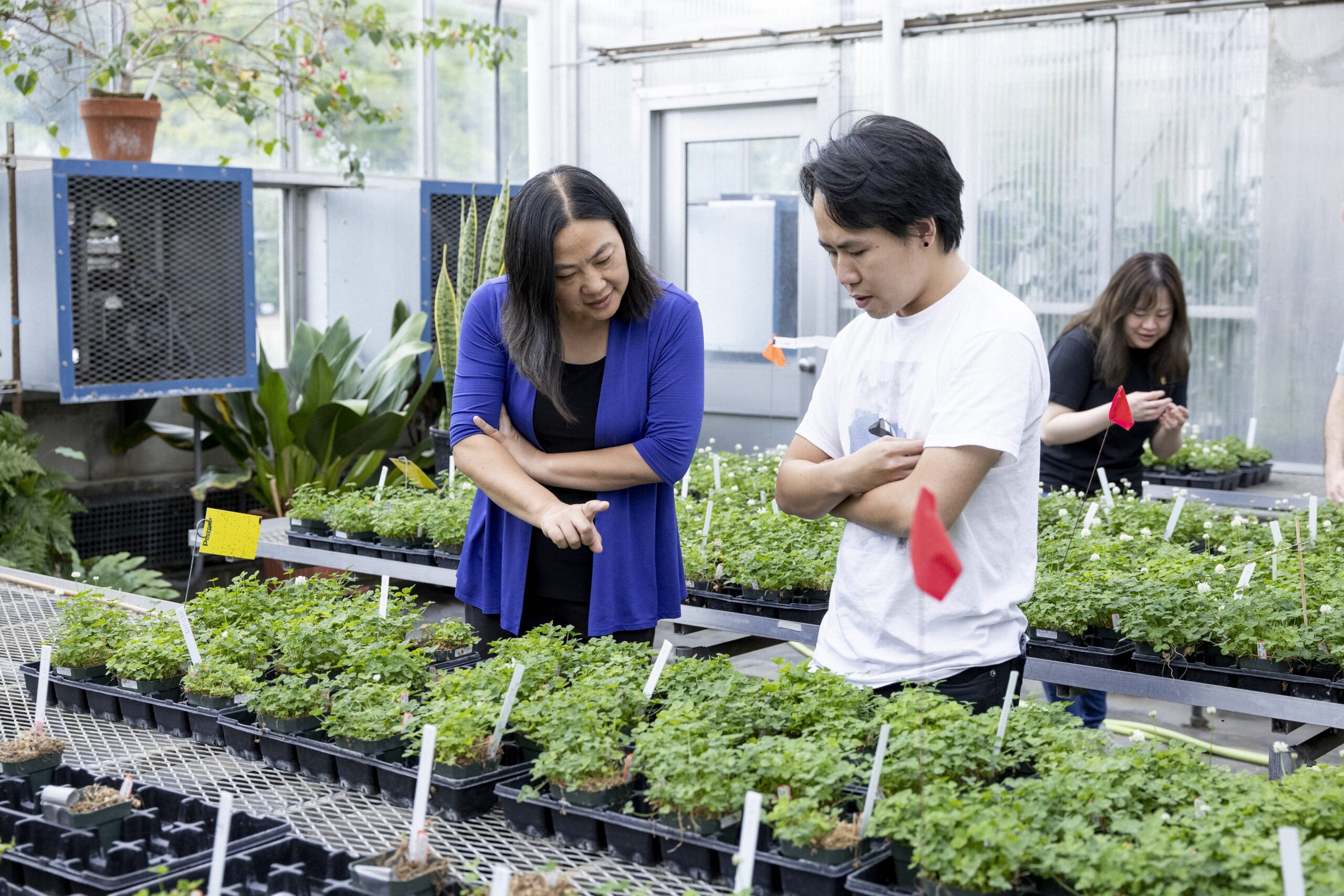New federal funding will advance the biologist’s pioneering research on plant epigenetics.

Xuehua Zhong, a professor of biology and the Dean’s Distinguished Professorial Scholar, has received several major federal grants to advance her pioneering work in plant epigenetics, the molecular processes that regulate gene expression without altering DNA.
Projects led or co-led by Zhong have recently received more than $9 million in funding from the National Science Foundation (NSF), National Institutes of Health (NIH), and Department of Energy (DOE) — a remarkable record at a time of tightening federal budgets.
“Xuehua has been on an upward trajectory with many high-impact studies since joining WashU,” said Ram Dixit, a professor and chair of biology. “Her phenomenal success with grants underscores the promise of her internationally recognized research program in plant epigenetics.”
Federal agencies have increasingly recognized epigenetics as a promising frontier for improving crop growth and resilience, with potential applications in both food security and biofuel production. Zhong has been a central figure in these efforts, helping shape the next generation of “smart” agriculture technologies.
“Scientists have been studying the genetics of crops for many decades, but epigenetics — especially epigenome editing and engineering — is a new area of research for crop improvement,” Zhong said. “Funding agencies are looking to support impactful research and promising technologies, and they know that my lab has a track record of producing high-impact results.”